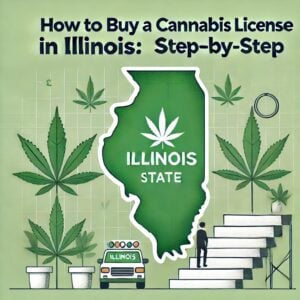
Congress Appropriations and Cannabis Legalization Update
Congress is directing significant attention to cannabis legalization through its appropriations process. What does this mean for you? Dive into the latest updates on

Minnesota Social Equity Cannabis License Lottery: Your Guide
Imagine a future where Minnesota’s cannabis industry is not only thriving but also inclusive and equitable. The opportunity is here. Your chance awaits to win

Delaware Cannabis License Lottery: Everything You Need to Know
As Delaware steps into 2024, the state unveils its cannabis license lottery for adult-use cannabis businesses. This development celebrates opening doors and creating opportunities for

How to Buy a Cannabis License in Illinois: Step-by-Step
The cannabis licensing process in Illinois can seem overwhelming, with tons of specific rules and legal requirements that a social equity adult-use dispensary license faces

How to Clear Cannabis Records in Kentucky?
Clearing a cannabis record is like erasing a chalkboard. Past felony convictions can hinder your future opportunities but expungement and void & seal provide ways

Clear Cannabis Records in Delaware: Cannabis Expungement
Delaware’s cannabis laws are evolving, much like the changing tides. If you have a cannabis record, clearing it is crucial. Think of expungement as pressing

Kentucky Medical Cannabis License Application Lottery
Kentucky’s medical cannabis license process involves a lottery system to ensure fairness. Business licenses are coming sooner than expected because of emergency regulations that moved

Clear your Minnesota marijuana arrest record
Cannabis expungement in Minnesota is transforming lives. A record from a minor cannabis offense, particularly if it includes an arrest, could haunt you for years,

Minnesota Cannabis Lottery 2024: What You Need to Know
Getting a cannabis license in Minnesota isn’t easy, but also the legislature amended the law and is gearing up for applications in summer 2024. The

